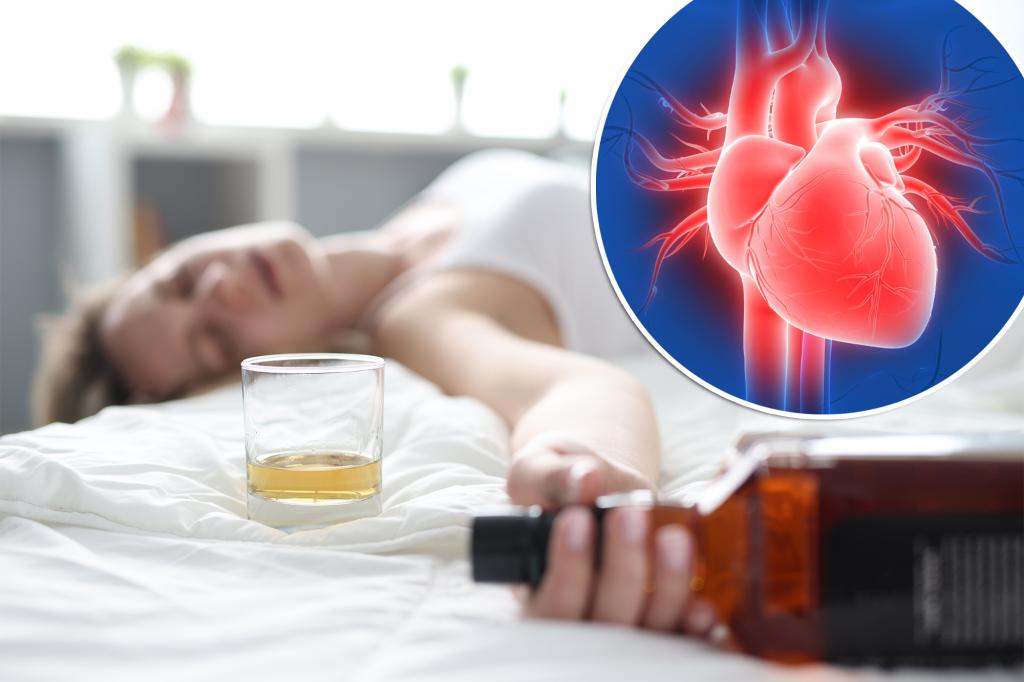Researchers have discovered a possible way to prevent irregular heart rhythms caused by binge drinking, a common occurrence during the holidays known as “holiday heart syndrome.” The researchers will present their findings at an upcoming American Heart Association conference in Chicago. Lead study author Saugat Khanal, a post-doctoral scholar at The Ohio State University, explained that during the holidays, heavy drinking can lead to a racing or abnormally beating heart even in those without previous heart conditions. Atrial fibrillation, also known as AFib, is the most common type of arrhythmia, which can increase the risk of stroke and heart failure. Around one-third of new AFib diagnoses in the United States are related to alcohol use.
More than 5 million US adults are affected by AFib, with repeated binge drinking leading to various health issues such as high blood pressure, liver disease, an increased risk of cancer, and serious arrhythmias. The researchers believe they have identified a heart-protective molecule that may prevent the activation of a stress-induced protein in the heart that can lead to AFib. In experiments conducted on mice to simulate holiday heart syndrome, the researchers found that their treatment using the molecule Alda-1 reduced the spike in stress protein associated with binge drinking and subsequent irregular heartbeats. While further studies using larger animals are needed to translate these findings into clinical applications, the results are promising for preventing holiday heart syndrome in humans.
Khanal’s findings are pending review by his peers before publication in a scientific journal. Another study being presented at the same conference warns premenopausal and menopausal women taking hormone replacement therapy of the negative effects of alcohol consumption on heart function. It is crucial for individuals, especially during the holiday season, to be mindful of their alcohol intake to prevent irregular heart rhythms. By understanding the mechanisms that lead to these heart issues and developing interventions like the one proposed by Khanal’s team, it may be possible to mitigate the risk of holiday heart syndrome and other alcohol-related heart problems.
The research conducted by Khanal and his team sheds light on potential strategies to address the impact of binge drinking on heart health during the holidays. By identifying a heart-protective molecule that could prevent irregular heartbeats caused by alcohol consumption, the researchers offer hope for individuals prone to holiday heart syndrome. Since AFib affects millions of individuals in the US and can lead to serious health complications, finding ways to mitigate the risk associated with alcohol-induced heart issues is crucial. Further studies using larger animals are needed to determine the effectiveness of the treatment in clinical settings, but the initial results are promising for preventing holiday heart syndrome and related conditions.
While additional research is necessary to validate the findings and translate them into clinical applications, the study provides a valuable insight into the impact of heavy drinking on heart health. By demonstrating that a heart-protective molecule can counteract the stress-induced protein spike associated with binge drinking, the researchers offer a potential solution to prevent irregular heart rhythms. By presenting their research at an American Heart Association conference, Khanal and his team contribute to the ongoing efforts to address alcohol-related heart problems and improve cardiovascular health outcomes. With further studies and validation, the heart-protective molecule may prove to be a valuable intervention for individuals at risk of holiday heart syndrome and other alcohol-induced heart issues.


